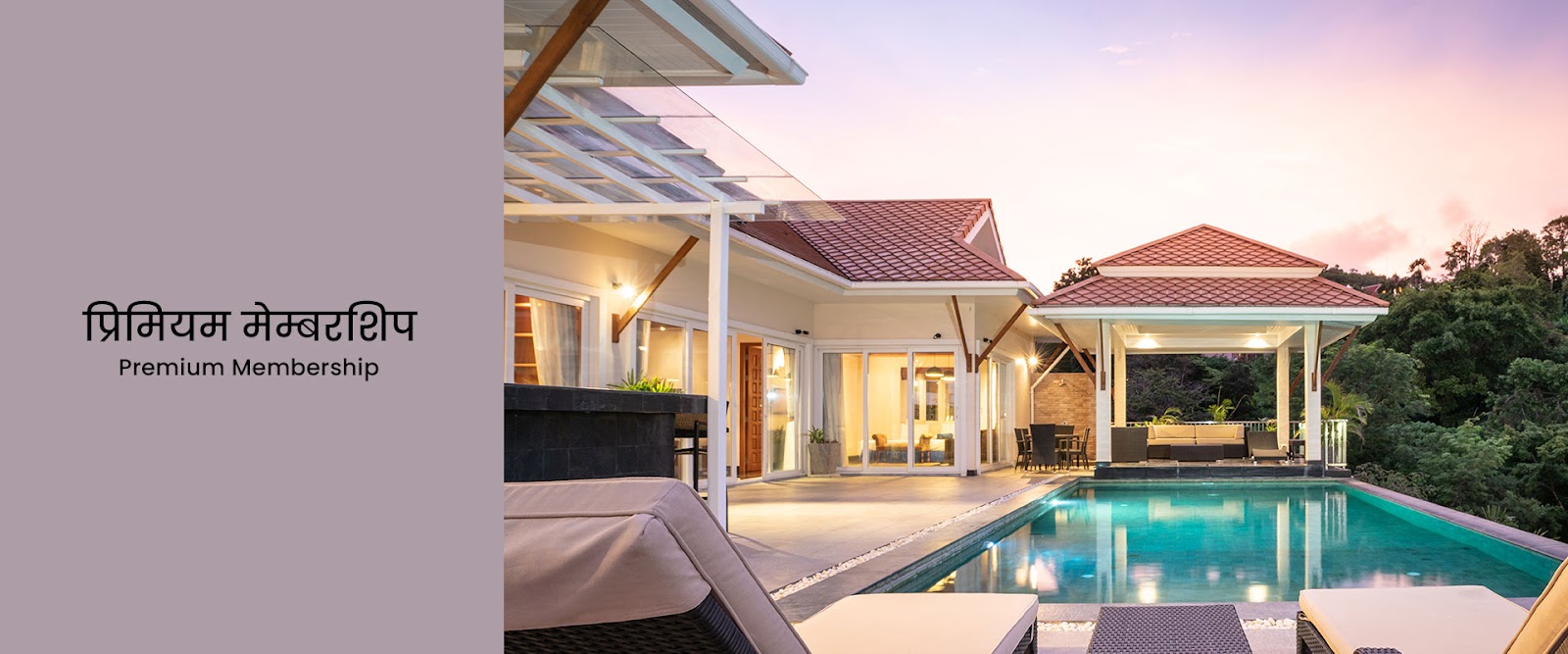अनुदिनी ३१ - "काय, १ करोड?" / Blog 31 - “What, 1 Crore?”
|
"काय, १ करोड? प्रसंग पहिला: काय, फक्त १ करोड? नाही... नाही शक्यच नाही! अरे सहा महिन्यापूर्वीच बाजूचा प्लॉट दीड करोड पेक्षा जास्तीने गेला. आता आम्हाला गरज आहे म्हणून एवढ्या कमी किंमतीत, शक्यच नाही. प्रसंग दुसरा: "हॅलो आई, माझा आवाज नीट ऐकू येतो आहे का?" अमेरिकेतून प्रशांतचा फोन. "हो, बोला प्रशांत" आई उत्तरली. "अगं, त्या मुरबाडच्या प्लॉट चे काय करायचे?" "अरे! तू ठरवलं आहेस ना विकायचा मग विकून टाकू. शेजारचे परांजपे घ्यायला तयार आहेत आणि किंमत पण बरी मिळते आहे." " अगं हो आई, पण टॅक्स जाऊन जास्ती काही शिल्लक राहणार नाही". इती प्रशांत. "अरे, बापरे!" प्रशांतच्या आईने दीर्घ उसासा टाकला. मंडळी, आर्थिक गुंतवणूक ही पुढील खर्चाचे नियोजन असते आणि स्वाभाविकपणे ते स्वतःसाठी असते तसेच ते नियोजन आपल्या प्रियजनांसाठीही असते. आता प्रत्येक प्रिय व्यक्तीच्या पुढील खर्चाचे किती नियोजन करायचे हा व्यक्तीसापेक्ष मुद्दा. म्हणजे, शिक्षणाची तर तरतूद करायची पण शिक्षण म्हणाल तर डिग्री पर्यंतच देऊ. नंतरच पोस्ट ग्रॅज्युएशन मुले स्वतः बघून घेतील. लग्नाच्या खर्चाचे म्हणाल तर तो आपणच करू! अशी ही यादी प्रत्येकाच्या बाबतीत थोडीबहुत सारखीच असते. तर काही ठिकाणी त्यांना त्यांच्या भविष्याकरिता स्थावरजंगम मालमत्ता करून ठेवण्यात स्वारस्य असते आणि मंडळी, इथेच घोडे पेंड खाते. म्हणजे आपण सुरवतीचे दोन प्रसंग विचारात घेतले असतील तर लक्षात येतं की, जंगम मालमत्ता मोकळी करायच्या वेळेस समोरच्याला गरज आहे म्हणून त्याची किंमत पाडली जाते तर दुसऱ्या प्रसंगात विक्री नंतर मालमत्ता कर (Capital Gain Tax) भरावा लागत असल्याने सौदा तितकासा फायद्याचा होत नाही. थोडक्यात आपल्या वारसाला गरज पडल्यास म्हणून आपण केलेली जंगम मालमत्तेतील धोरणात्मक गुंतवणूक कदाचीत त्याला तापदायक ठरते. काय म्हणता गोंधळ उडाला? म्हणजे, जंगम मालमत्ता करायचीच नाही की काय? मंडळी करावयास हरकत नाही, पण करताना सर्वप्रथम एक लक्षात ठेवायचे की, मी स्वतः एक संपत्ती आहे त्याकडे लक्ष देणे आवश्यक त्या नंतर स्थावर-जंगम मालमत्ता. कारण या 'मी' रुपी कौशल्यातून, कार्यशैलीतून, आत्मविश्वातून 'तो' त्याच्या प्रियजनांसाठी विश्व निर्माण करत असतो. त्यामुळे त्याचे मूल्यांकन होणे आवश्यक आणि ते जपणे म्हणजे त्याला जीवन विम्याचे संरक्षण (insured) देणे अत्यावश्यक. तुम्ही म्हणाल, "राव आहे की आमचा विमा, चांगला १ कोटीचा टर्म प्लॅन घेतलाय!" उत्तम! पण टर्म प्लॅन एका निवडलेल्या कालावधी नंतर संपणार म्हणजे आजीवन नसणार आणि जर ह्या निवडलेल्या कालावधी नंतर मी निवर्तलो तर माझ्या प्रियजनांना मिळणारी रक्कम शून्य असेल. त्या ऐवजी आजीवन विमा (Whole life insurance )घेतल्यास , मी एक खात्रीपूर्वक विमा रक्कम प्रियजनांसाठी ठेवून जातो. ही रक्कम स्थावर जंगम मालमत्तेप्रमाणे बाजारमूल्यावर (Market Value) अवलंबून नसते. महत्वाचे म्हणजे ह्या मिळणाऱ्या रकमेवर संपत्ती कर लावला जात नाही,ती पूर्णपणे करमुक्त असते. मंडळी आपण काय कराल? कोणतीही स्थावर जंगम मालमत्ता उभारण्या अगोदर आपला योग्य तो आजीवन विमा करावा, जो जीवाच्या लयानंतर लगोलग खात्रीपूर्वक संपत्तीची उत्त्पत्ती करतो. 'ह्या' संपत्तीच्या निर्मितीच्या आड इतर कोणताही अडसर येत नाही. मग, काय म्हणता राव? |
||
|
“What, 1 Crore?” Incident 1: What, just 1 Crore? No… Impossible! Look, just six months ago, the adjacent plot fetched more than 1.5 crores. Now just because we are in need, such a low-price offer, impossible. Incident 2: “Hello, Mom! Can you hear me properly?” Prashant had called from America. “Yes, tell me, Prashant!” Answered Mom. “Mom, what have you thought about the Murbad plot?” “Prashant, you have decided to sell it, so we sell it. Our neighbor Mr. Paranjape has offered to buy it at a fair price.” “Yes, Mom, but after paying all the taxes, nothing much will be left,” said Prashant “Oh, is it!” Sighed Prashant’s Mom. Friends, Financial investments are planned in anticipation and for provisioning for future expenses, and obviously, as they are for self, they are also for our kin too. Now how much one provisions for the kin is a matter of the individual’s plan and thinking. Like, if you plan for the expenses towards education, then the planning would be up to graduation. Post-graduation expenses would be borne by the children themselves. Yes, we can bear the expenses of their marriage, though! More or less, the list of expenses is similar among all the people. Some people are more inclined towards acquiring immovable property for the future, and this is where the error occurs. That is, if you have seen the examples in the above two incidents, you will realize that when you desire to liquidate the property, the price is deliberately offered less as the seller is in need, and in the second incident, the deal doesn’t seem profitable as the capital gain tax is too much. In short, the heir to whom the immovable property has been bequeathed actually does not get much gain but rather frustration and tension. Confused! Aren’t you? Do you mean that one should not buy immovable property at all? Friends, it is not wrong to purchase immovable property, but before that, it is important that one should understand that he himself is a “property” and, therefore, should be taken care of first and then the immovable property. Because the 'ME' creates the world for his loved ones through his skill, intelligence, and confidence. And that is why it is essential to preserve the 'ME' with the protection of insurance. You would say that you already have a term plan of ₹. 1 crore. Great! But the term plan is only for a selected period, and it would end after the time period ends. And if one dies after the term plan ends, the kin will get no money at all. Instead, if I buy whole life insurance, my loved ones shall get an assured insurance amount. This amount is not dependent on the current market rate of the immovable property. And importantly, the insurance amount does not attract any property tax; rather, it is entirely tax-free. So, friends, what will you do? Before you buy any immovable property, please ensure to buy whole life insurance that will provide an assured amount after death. There are no constraints or hindrances in creating 'THIS' property. So! What say, friends? |











Comments
Post a Comment